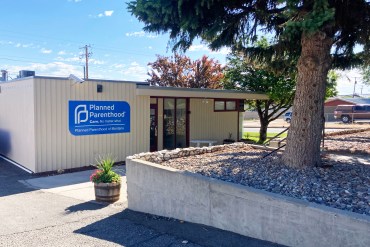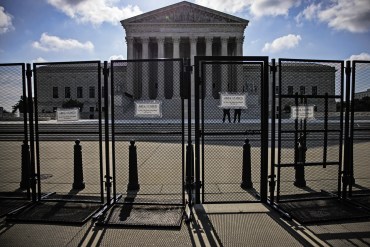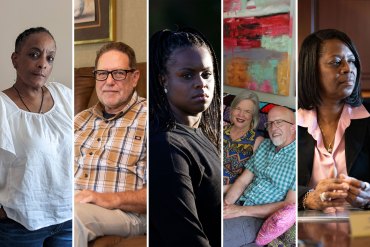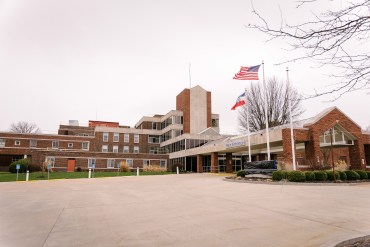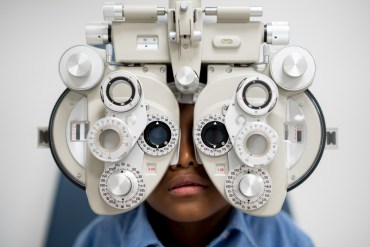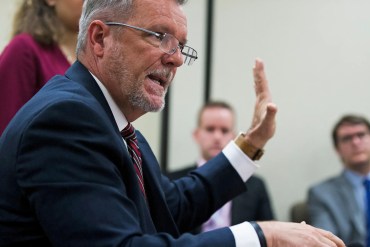Montana Clinics That Provide Abortions Preemptively Restrict Pill Access for Out-of-State Patients
Montana is an island of legal abortion, but three of the state’s five clinics are limiting access to abortion pills for out-of-state patients in an effort to protect themselves and patients from legal attacks.
Watch: Crossing State Lines for Abortion Care
Illinois is one of the few states in the middle of the country where people can still legally access abortion care.
Three-Year Abortion Trends Vary Dramatically by State
About 930,000 abortions occurred in the U.S. in 2020, an 8% increase from 2017. But that nationwide figure belies dramatic variation among states — disparities expected to magnify in the wake of the Supreme Court’s decision to strike down Roe v. Wade.
‘It’s Not a Haven’: With Limited Capacity for Abortion Care, Minnesota Clinics Brace for Influx
In Minnesota, where abortion rights are protected by the state’s constitution, legal doesn’t necessarily mean accessible. The state has just eight clinics that provide abortions, and both providers and advocates say resources available aren’t enough to meet demand as nearby states reduce abortion access.
Five Things to Know Now That the Supreme Court Has Overturned Roe v. Wade
By undoing that landmark decision, the law of the land since 1973, the court has empowered states to set their own abortion restrictions — so where people live will determine their level of access.
Tribes Show Little Interest in Offering Abortions on Reservations Despite Speculation They Could
The notion that Native American nations could use tribal sovereignty to bypass state restrictions on abortion if Roe v. Wade falls is an idea largely proposed by non-Native groups.
Upended: How Medical Debt Changed Their Lives
People talk about the sacrifices they made when health care forced them into debt.
Buy and Bust: When Private Equity Comes for Rural Hospitals
Noble Health swept into two small Missouri towns promising to save their hospitals. Instead, workers and vendors say it stopped paying bills and government inspectors found it put patients at risk. Within two years — after taking millions in federal covid relief and big administrative fees — it locked the doors.
Race Is Often Used as Medical Shorthand for How Bodies Work. Some Doctors Want to Change That.
Physicians have long believed it’s good medicine to consider race in health care. But recently, rather than perpetuate the myth that race governs how bodies function, a more nuanced approach has emerged: acknowledging that racial health disparities often reflect the effects of generations of systemic racism, such as lack of access to stable housing or nutritious food.
States Fight Student Mental Health Crisis With Days Off
In early 2022, Illinois joined a growing number of states where lawmakers and school leaders are trying to combat the ongoing student mental health crisis by granting days off for mental health needs.
Covid Funding Pries Open a Door to Improving Air Quality in Schools
Researchers say the billions in pandemic funding available for ventilation upgrades in U.S. schools provides a once-in-a-generation opportunity to combat covid-19, as well as making air more breathable for students living with allergies, asthma, and chronic wildfire smoke.
Long Wait for Justice: People in Jail Face Delays for Mental Health Care Before They Can Stand Trial
People in jail who have serious mental illness and cannot stand trial because of their condition are waiting months, or even more than a year, to get into their state psychiatric hospitals.
Children’s Vision Problems Often Go Undetected, Despite Calls for Regular Screening
Eye exams for children are required under federal law to be covered by most private health plans and Medicaid, and many states mandate school vision screenings. But a federal survey finds that a quarter of children and teens are still not getting the recommended tests.
Patients Seek Mental Health Care From Their Doctor but Find Health Plans Standing in the Way
Despite a consensus that patients should be able to get mental health care from primary care doctors, insurance policies and financial incentives may not support that.
They Thought They Were Buying Obamacare Plans. What They Got Wasn’t Insurance.
Some consumers who think they are signing up for Obamacare insurance find out later they actually purchased a membership to a health care sharing ministry. But regulators and online advertising sites don’t do much about it.
Montana Hires a Medicaid Director With a Managed-Care Past
Montana, one of about a dozen states still managing its own Medicaid programs, has a new Medicaid director who championed handing the management of the program to private companies in Iowa and Kansas.
Tribal Pharmacy Dispenses Free Meds and Fills Gaps for Native Americans in the City
The Mashkiki Waakaa’igan Pharmacy in downtown Minneapolis gives Native Americans an economical option for filling prescriptions while being sensitive to tribal traditions and expectations.
‘Almost Like Malpractice’: To Shed Bias, Doctors Get Schooled to Look Beyond Obesity
Research has long shown that doctors are less likely to respect patients who are overweight or obese — terms that now apply to nearly three-quarters of adults in the U.S. The Association of American Medical Colleges plans to roll out new diversity, equity, and inclusion standards aimed at teaching doctors, among other things, how to treat patients who are overweight with respect.
Caskets Wrapped in Colorful Images Pay Tribute to Young Lives Lost to Trauma and Violence
Mourners are wrapping caskets in imagery, similar to the way companies wrap logos around cars, trucks, and buses. Across the country, casket-wrap companies create custom designs, too often for grieving parents who have lost their children to gun violence.
Bison Pastrami, Anyone? Preschool Assistant Makes Sure Kids Get to Know Indigenous Foods
Fawn Youngbear-Tibbetts wants youngsters to connect with their Native American culture and eat more nutritious foods.




